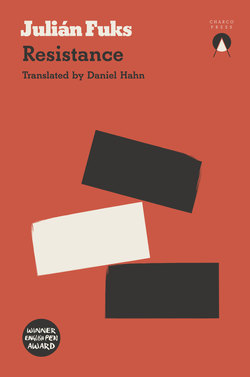Читать книгу Resistance - Julián Fuks - Страница 7
На сайте Литреса книга снята с продажи.
Оглавление1.
My brother is adopted, but I can’t say and don’t want to say that my brother is adopted. If I say this, if I speak these words that I have long taken care to silence, I reduce my brother to a single categorical condition, a single essential attribute: my brother is something, and this something is what so many people try to see in him, this something is the set of marks we insist on looking for, despite ourselves, in his features, in his gestures, in his acts. My brother is adopted, but I don’t want to reinforce the stigma that the word evokes, the stigma that is the word itself made character. I don’t want to deepen his scar, and if I don’t want to do this, I must not say scar.
I could use the verb in the past tense and say my brother was adopted, thereby freeing him from that eternal present, from perpetuity, but I can’t get over the strangeness of this formulation. My brother wasn’t some different thing until he was adopted; my brother became my brother the moment he was adopted, or rather, the moment I was born, some years later. If I say my brother was adopted, it’s as though I were reporting quite calmly that I’d lost him, that he was kidnapped, that I had a brother until somebody came and took him far away.
The remaining option is the most sayable; of all the possibilities, it’s the one that causes the least disquiet, or that best disguises it. My brother is an adoptive son. There’s something technical about the term, adoptive son, which contributes to its social acceptability. There’s a novelty to it that absolves him, just for an instant, of the blemishes of the past, that seems to cleanse him of any undesirable meanings. I say my brother is an adoptive son and people nod solemnly, masking any sorrow, lowering their eyes as though they weren’t eager to ask anything more. Perhaps they share my uneasiness, or perhaps they really do forget the whole business with the next sip or the next forkful. If the uneasiness continues to reverberate within me, it’s because I also hear this phrase partially – my brother is a son – and it’s hard to accept that it won’t end up leading to the usual tautological truth: my brother is the son of my parents. I chant over and over that my brother is a son and the question always springs to my lips: whose son?
